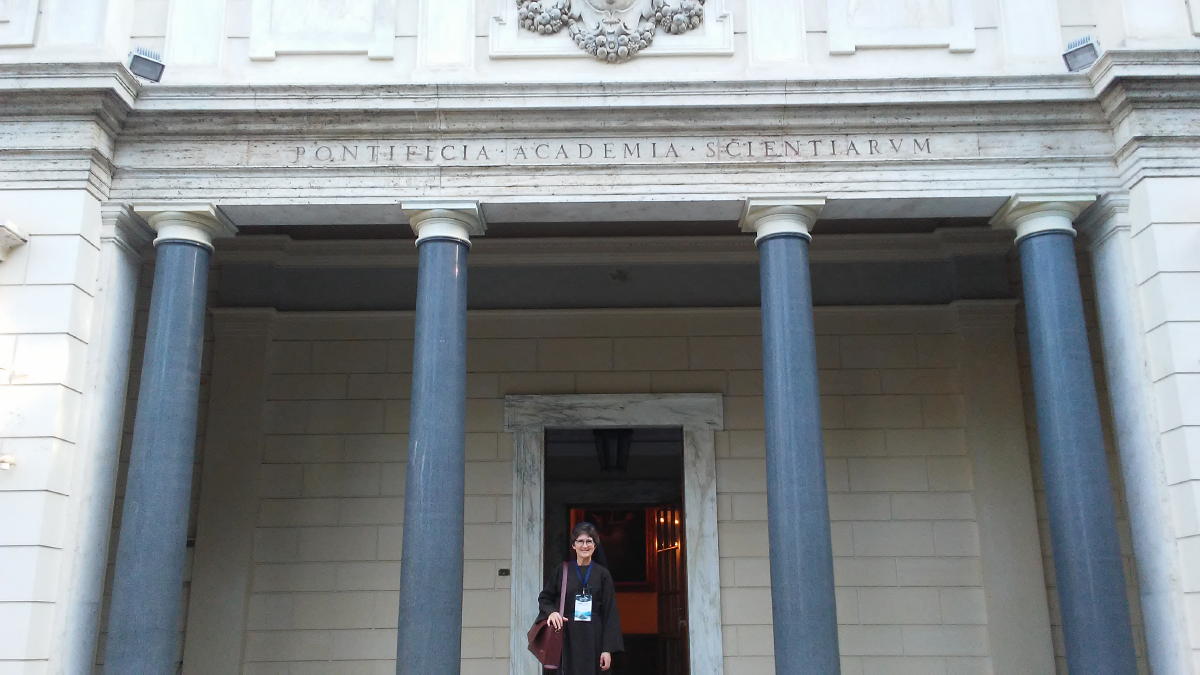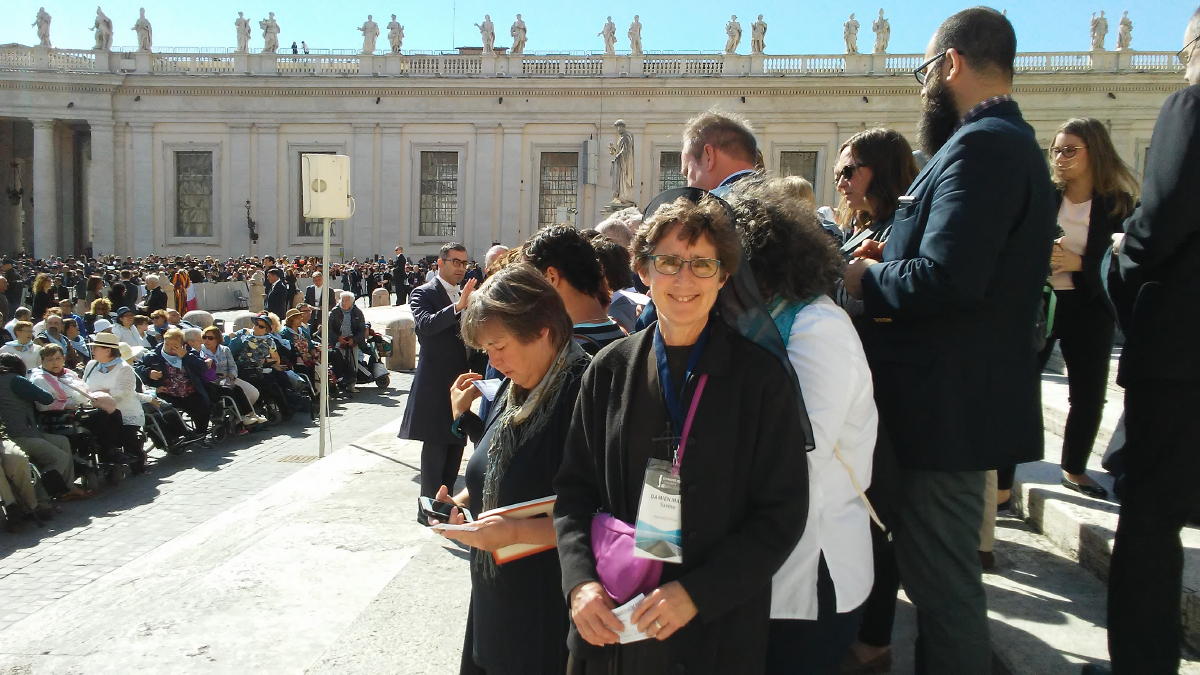
Sister Damien Marie Savino, FSE, Ph.D. on the steps of the Pontifical Academy of Science in the Vatican where the Expanded Reason Awards Conference was held.
ROME – Sister Damien Marie Savino, Ph.D. participated in the “Expanded Reason Awards” Conference held at the Vatican the last week of September 2018. The conference is sponsored by the University Francisco de Vitoria in collaboration with the Vatican Foundation Joseph Ratzinger/Benedict XVI. The purpose of the Expanded Reason Awards is to acknowledge researchers and professors who view the whole of the human person and expand beyond a narrow scope of one area of science, thus integrating science, philosophy and theology in their vision of the dignity of human beings. The annual conference is inspired by the teaching of Pope Benedict XVI.
Sister Damien Marie is the Dean of Science and Sustainability at Aquinas College, Grand Rapids, Michigan.
The abstract of Sister Damien Marie’s presentation follows:
Abstract
While the Catholic intellectual tradition has always upheld the uniqueness of the human person, much prominent scientific research has come to an alternative conclusion – namely, that the gap between humans and other animals is not as wide as was once thought and that humans are not significantly different from other animals. How can we address this apparent “disjunct” between philosophy/theology and modern science? In the context of “expanded reason,” can we open up a richer dialogue on this question, one that seriously considers scientific findings and brings them into meaningful dialogue with Catholic philosophy and theology?
This paper proposes that the method of disputatio is an effective means for bringing the modern sciences into dialogue with philosophy and theology in relation to questions of the human person, especially in cases where there appears to be a conflict between them. In essence, this method could be a tool for “practicing” expanded reason in contemporary educational settings. This paper will thus demonstrate the use of disputatio to dialog about the question of whether the human person is different from other animals. In particular, the paper will consider an attribute of human beings that is unexplored in the literature – namely, the human capacity to garden. The paper is an example of a disputatio on the question: Does the capacity to garden make humans distinct from other animals?

Sister Damien Marie on the steps of St. Peter’s Basilica with her group as they await the arrival of Pope Francis to greet them.
